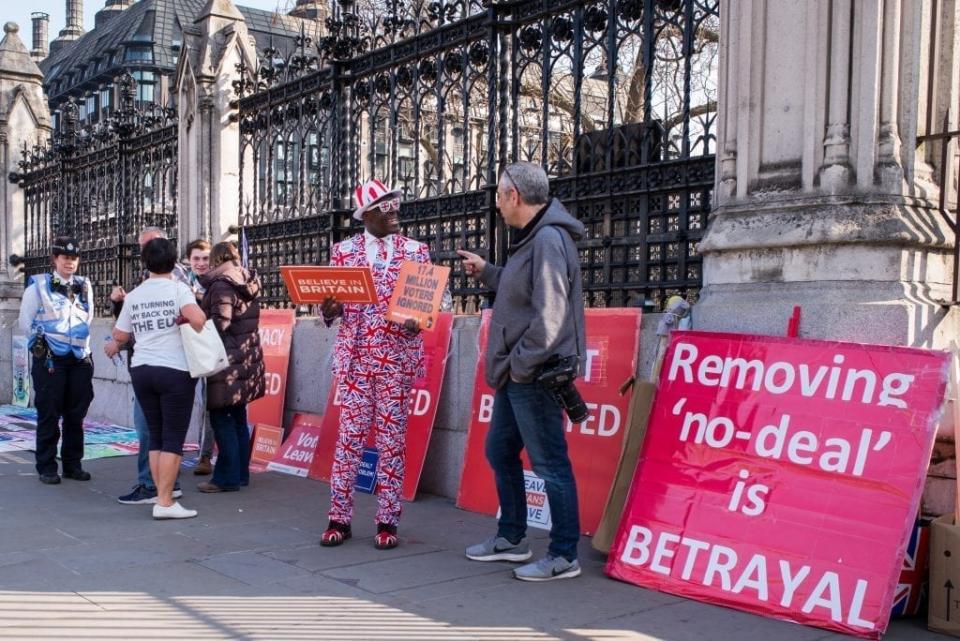Attention Travel Companies: Brexit Contingency Reveals Potential for Data Disruption

Amid the warnings of public disorder, food shortages, and transport delays in the event of a no-deal Brexit, data flow disruptions might seem like a trivial thing to worry about.
But given the interconnectedness of the European online world, it is worth considering just what kind of impact this might have, especially on the travel industry.
On Wednesday night, the UK government was forced to reveal one of its contingency assessments, known as Operation Yellowhammer, which details what might happen if the UK leaves on October 31 without a deal.
“The EU will not have made a data decision with regard to the UK before exit. This will disrupt the flow of personal data from the EU where an alternative legal basis for transfer is not in place. In no deal an adequacy assessment could take years,” the report said.
While the UK will not impose restrictions, it is a two way street and the EU’s reluctance to fast track any changes presents plenty of problems.
The restrictions “will have a major impact on any organisation that routinely transfers personal data from the EU to the UK” law firm DLA Piper noted recently and could also affect the transfer of data to the United States, said Jon Belcher, a senior associate at Blake Morgan.
Any changes won’t affect personal data provided directly. As an article on technology website The Register points out, this means Germans booking directly with UK hotels would be OK but “if they give their data to a German travel company, that travel company is controlling the tourists’ data and could be blocked from using it to make bookings on their behalf.”
Skift asked a range of multi-national online travel agencies to see if they were worried about the recent developments and the slide towards a potential no-deal.
“Our effort has been being so focused on data protection and Brexit that we had already taken important actions to ensure and enforce the most solid compliance with data protection laws even in the case of a no-deal Brexit,” said a spokesperson at Lastminute.com Group.
EDreams Odigeo offered a similar response. “Whilst the precise nature of the UK’s departure from the EU is yet to be finalised, eDreams ODIGEO continues to monitor the situation closely,” it said.
“In the meantime, naturally our teams are working to ensure we’re fully prepared for the UK’s departure, whatever form it may take.
“Our group is carrying out its commercial activities from companies located inside and outside the United Kingdom, so we’re well positioned to address the challenges of all types of Brexit scenarios.”
Skift also contacted Expedia and Booking.com but is yet to hear back.
Travel Disruption
The UK government has tried to spin the document as a “worst case” assumption, but the journalist leaked an almost identical copy last month said the only difference between the two was that hers was labelled “base scenario”.
Whatever the likelihood, it is clear that the UK is woefully ill prepared to leave the EU and if the two sides cannot agree a deal then some disruption is a given with travel being one of the likely targets.
“UK citizens traveling to and from the EU may be subject to increased immigration checks at EU border posts,” the document said.
Planes will still fly thanks to an existing agreement — now extended — but new immigration polices in individuals countries would mean “it is likely that delays will occur for UK arrivals and departures at EU airports and ports.”
Skift contacted Ryanair and EasyJet but is yet to hear back.
Britons traveling in the EU also face losing the benefits of the European Health Insurance Card, a scheme that offers free or reduced medical provisions in member countries.
“UK pensioners, workers, travelers and students will need to access healthcare in different ways, depending on the country,” the document said. This could lead to people having to pay after receiving treatment.
“There is a risk of disruption for patients and a minority could face substantial costs.”
Prime Minister Johnson said that since taking over the country has “massively accelerated” its preparations and is still trying to strike a deal with the EU. Any agreement, however, would have to pass through parliament, something Johnson’s predecessor could not achieve.
Subscribe to Skift newsletters covering the business of travel, restaurants, and wellness.
